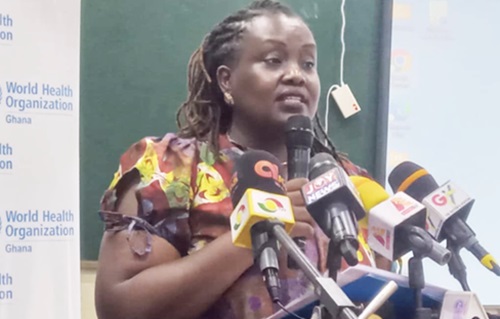Ghana join countries globally in introducing HPV vaccination
Ghana joins over 140 countries globally in introducing HPV vaccination

Ghana has joined over 140 countries globally, including 28 in the World Health Organisation (WHO) African Region that have introduced Human Papillomavirus (HPV) vaccination into their routine immunisation programmes to protect adolescent girls.
The intervention is seen as an essential move in the nation’s quest towards tackling cervical cancer and protecting adolescent girls, especially those between nine and 14-years-old.
Cervical cancer is the fourth most common cancer globally, with over 600,000 women diagnosed each year. Tragically, the highest burden is borne by sub-Saharan Africa, together with Central America and South-East Asia.
More than half of these women succumb to the disease and alarmingly, nine out of 10 of the deaths occur in developing countries.
In Africa, over 70 per cent of cervical cancer cases are diagnosed at the advanced stage, leading to poor treatment outcomes and devastating financial consequences for families and health systems.
The global agenda to eliminate cervical cancer is enshrined in Sustainable Development Goal (SDGs) 3.4, which aims to reduce premature mortality from non-communicable diseases by one-third by 2030.
Stakeholder engagement
The WHO Ghana Representative, Dr Fiona Braka, disclosed this during a stakeholder engagement in Kumasi in the Ashanti Region last Wednesday, ahead of the nationwide HPV vaccine introduction.
The event brought together regional directors of education and School Health Education Programme (SHEP) coordinators across the country with the aim of raising awareness of cervical cancer burden and HPV vaccine introduction in Ghana.
She said in countries such as Ghana, where access to cervical cancer screening and treatment is limited, the HPV vaccination is the cornerstone of prevention to protect the lives of girls and women.
Making progress
Dr Braka said the global community was making progress and success depended on countries maximising HPV vaccine deployment to achieve high and equitable coverage, while also strengthening screening and treatment services.
“Delivering the HPV vaccine through the national immunisation programme assures equitable and sustainable access for all girls aged 9–14 irrespective of their sociodemographic profile”, Dr Braka noted.
She stated that Ghana’s School Health Programme exemplified the power of collaboration between health and education sectors through the delivery of impactful interventions such as Girls’ Iron-Folate Supplementation (GIFTS) to prevent anaemia and mass drug administration for neglected tropical diseases (NTDs).
Protect girls
The Ashanti Regional Director of Health Services, Dr Fred Adomako-Boateng, said the introduction of the vaccine would offer the opportunity to protect girls early before they were exposed to the virus that causes the disease.
He stated that the GHS had scheduled to vaccinate all girls aged from nine to 14 to give them a head start towards healthier cervical cancer-free adulthood, and, therefore, called on the participants to support the provision of accurate information to the school pupils and parents.
He said, “This will facilitate the vaccination process within schools and you(teachers) will serve as champions to dispel myths and fears around the vaccine”, saying, “Let us collaborate with the various teams to reach every girl no matter where they live”.
In a welcome address, the Ashanti Regional Director of the Ghana Education Service, Dr William Kwame Appiah Amankrah, said the introduction of the vaccine was not just a health strategy but an investment in the nation’s human capital.
“Protecting the health of girls means empowering women tomorrow to contribute to the growth and development of the nation,” Dr Amankrah stated.



